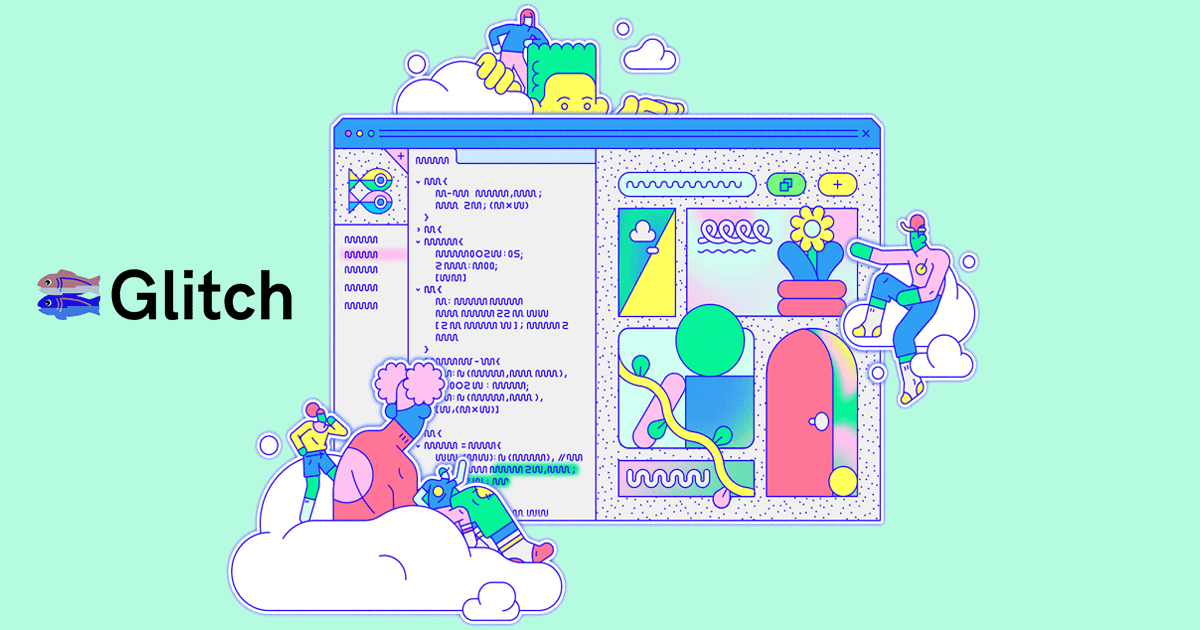

I Know What You Did Last Summer (With Glitch and Cloudflare)
source link: https://hackernoon.com/i-know-what-you-did-last-summer-with-glitch-and-cloudflare
Go to the source link to view the article. You can view the picture content, updated content and better typesetting reading experience. If the link is broken, please click the button below to view the snapshot at that time.

I Know What You Did Last Summer (With Glitch and Cloudflare)
by @raymondcamden
Raymond Camden
@raymondcamden
Father, husband, web nerd who builds too many cat-based demos....
Too Long; Didn't Read

audio element.@raymondcamden
Raymond CamdenFather, husband, web nerd who builds too many cat-based d...
Receive Stories from @raymondcamden
Credibility
Every now and then, I get a dumb little idea. And too often, I turn those dumb ideas into little web toys. About five years ago, I discovered Markov chains, which--in my limited understanding--is a deterministic way to guess what would come after some input. A bit like autocomplete. For example, if I type "I like,” I'm more likely to type "cats" after that than "yard work.” It's fairly complex (see the Wikipedia link above for more details) and perhaps a tiny bit like GenAI. For me, I just think it's neat.
Five years ago, I took the excellent titlegen npm package, a list of Cure songs, and built a generator for... well, Cure songs: Generating Random Cure Song Titles with Markov Chain. I was thinking about this post and wondered if I could do something with horror movies. Why horror movies? Maybe because it's 200 degrees here, and I'm really pining for October and Halloween. Either way, I built it! And here's how I did it.
Getting the Data
In order for my demo to work, I needed data for the Markov chain. For my data, I used the really simple TMDB API. This gives you access to loads of movie and TV data, and while I've seen folks use it before, this was the first time I tried it, and honestly, I was really impressed with it. To get my data, I hit their discover endpoint with these arguments:
- The horror genre (27), per the docs.
- No video (I believe that means direct-to-video) or adult movies.
- Original language as English
The API can only return 20 results per call but supports paging. I decided to use Cloudflare Workers again because I'm enjoying the platform and knew I could get something up super quick. I want to point out that I'm also using Glitch, and Glitch absolutely supports server-side code. I just felt more comfortable doing my server-side code in Cloudflare and my front-end in Glitch.
Ok, so here's the entire worker:
// Horror!
const GENRE = '27';
// cache time of 6 hours
const CACHE = 60 * 60 * 6;
async function getHorrorMovies(key,page=1) {
let resp = await fetch(`https://api.themoviedb.org/3/discover/movie?include_adult=false&include_video=false&with_genres=${GENRE}&with_original_language=en&page=${page}`, {
headers: {
'Authorization':`Bearer ${key}`
}
});
return (await resp.json()).results;
}
export default {
async fetch(request, env, ctx) {
const APIKEY = env.MOVIEAPI;
let titles = await env.horrormovies.get('horrormovies');
if(!titles) {
let horrorMovies = [];
const totalPages = 20;
for(let i=0;i<totalPages;i++) {
let movies = await getHorrorMovies(APIKEY,i+1);
horrorMovies = [...horrorMovies, ...movies]
}
console.log(`Fetched ${horrorMovies.length} horror movies.`);
titles = horrorMovies.map(m => m.title);
await env.horrormovies.put('horrormovies', JSON.stringify(titles), { expirationTtl: CACHE });
} else titles = JSON.parse(titles);
return new Response(JSON.stringify(titles), {
headers: {
'Access-Control-Allow-Origin': '*',
'Access-Control-Allow-Methods': 'GET,HEAD,POST,OPTIONS',
'Content-Type':'application/json;charset=UTF-8'
}
});
},
};
On top, I've got a function that wraps calls to the TMDB API. My worker hits the KV cache (something I'll be blogging about more on Monday, for now, just think of it as a simple key/value caching system) if possible, and if not, grabs 400 movies from the API, filtering out to the just the titles. I cache for 6 hours so the worker can return quicker. Finally, I return the data along with CORS headers so I can use it from another server. You can hit this endpoint here: https://horrormovies.raymondcamden.workers.dev/
Presenting the Data
For the front end, I used Glitch. I set up my HTML, JavaScript, and CSS there. You can view all the code at the project, but I'll focus on the JavaScript.
On page load, I fetch my titles from the Cloudflare Worker and then use titlegen to initialize the ability to generate titles. As I said, their utility package is super simple. Here's the entire JavaScript file:
let $title, generator, $regenBtn;
document.addEventListener('DOMContentLoaded', async () => {
let titlesReq = await fetch('https://horrormovies.raymondcamden.workers.dev/');
let titles = await titlesReq.json();
generator = titlegen.create();
generator.feed(titles);
$title = document.querySelector('#title');
$regenBtn = document.querySelector('#regenBtn');
doTitle();
$regenBtn.addEventListener('click', doTitle);
});
function doTitle() {
$title.innerText = generator.next();
}
As you can see, it's one line to initialize titlegen, one to input the data, and then just running next() to get a new title.
And that's literally it. Play with the full version here:

Glitch Code Editor ・゚✧
Simple, powerful, free tools to create and use millions of apps.Obviously, it doesn't always work, but sometimes the "silly" results are funny as hell:
- Final Destination 5: The Addams Family 2
- You Should Have Eyes
- H.P. Lovecraft's Dracula
I hope you've enjoyed this 100% useless bit of code today! Note that the font I used, while excellent, apparently doesn't support numbers.
The Future of AI Writing Contest is sponsored by Gadfly AI. $1000 Writing Award to the Best Voices and Visualizations on AI Disruption this August!
Recommend
About Joyk
Aggregate valuable and interesting links.
Joyk means Joy of geeK